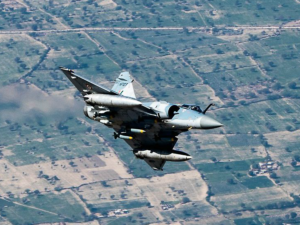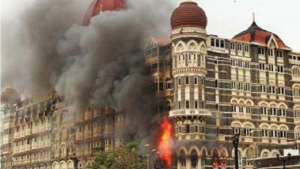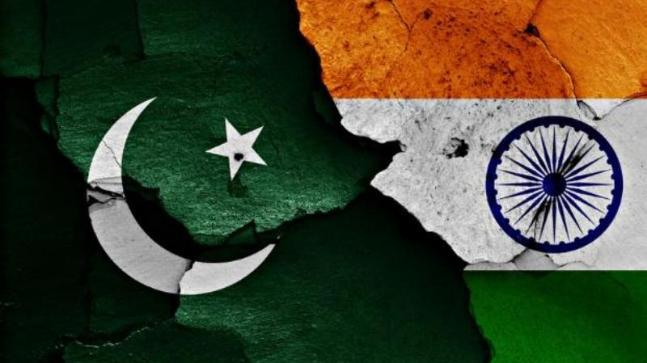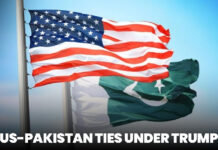In the wake of Pulwama attack in India and following the airstrikes in Pakistan, Islamabad is again pledging to get tough on terrorists. Apparently, Pakistan launched a crackdown on jihadist groups and claims to have taken 44 people into preventive custody including the detaining of two close relatives of Jaish-e-Mohammed Chief Maulana Masood Azhar. But, India made it clear that it wanted to see concrete steps from Islamabad to wind up terrorist infrastructure, and India will keep ‘all options’ open in case of another terrorist attack.
“If it is a ‘Naya (New) Pakistan’ with ‘Nayi Soch (New thinking),’ we need ‘Naya Action’ (New action),” Raveesh Kumar, MEA spokesperson put the Indian government’s stance in perspective. Pakistan’s move to have terrorist groups on the watch list was “just an attempt by Islamabad to deceive the international community”. “We want to see concrete action before any engagement,” he said. Why should this time be any different?
This time around, observers believe the Pakistani Army may have assented to the crackdown on JeM, however, the ground reality remains the same. These terror groups are still thriving and going about their business, as usual. Even Pakistan opposition leader Bilawal Bhutto Zardari asserted the same by saying that there was no crackdown on terrorists in Pakistan but instead critics of the government were targeted.

Following the Indian air strikes in Balakot, Pakistan took a series of steps, which, as per Pakistani media reports, are part of a decisive crackdown on banned terror outfits. Several facilities of Jamat-ud-Dawa, Falah-i-Insaniatand Jaish-e-Mohammed have been targeted and a fair number of terrorists detained, the Pakistani government has claimed. However, the Indian government believes these actions to be lip service.
“We are seeing the same script that has been played out earlier after the terrorist attacks on our Parliament in December 2001, the Mumbai terrorist attack in November 2008 and the attack on the Pathankot airbase in January 2016,” said Foreign Ministry spokesperson Raveesh Kumar. He added that Pakistan’s claims to act against groups and individuals were confined to paper. “Actually, terrorist groups and individuals continue their activities without hindrance. Pakistan has not shown any serious intent to address the legitimate concerns of India and the global community.”
For decades, New Delhi has been giving proofs to Islamabad of allowing terrorists like Maulana Masood Azhar and militant networks like Jaish-e-Mohammad (JeM) operating and planning attacks against India. But Pakistan has typically responded with disdain and dismissiveness. Islamabad, for example, failed to arrest Azhar when JeM was accused of attacking Srinagar’s Assembly building in October 2001. Pakistani authorities, though, apprehended him post the attack on the Parliament building in New Delhi two months later (Dec 13, 2001), but never charged him.
In the past, Pakistan’s efforts to act against anti-India militant groups have only been a zero sum game. Its recent moves against Azhar and JeM seem straight out of its playbook of 2008, when it was forced to act against LeT, responsible for a series of attacks in Mumbai that killed more than 160 people. The ensuing investigation resulted in no charges against LeT’s top leader, Hafiz Muhammad Saeed, prompting speculation that Pakistan had no intention of curtailing the group, and others like it.
Pakistan’s present handling of Azhar’s case bears unmistakable parallels to its previous handling of the LeT case. After the Mumbai attack in 2008, Islamabad was initially dismissive of allegations that the assault was rooted in Pakistan. It later admitted that the attack was partially planned by LeT.
With no charges against him, Saeed challenged his detention and was set free by the Lahore High Court. Today, Saeed is thriving as a leader of Jamaat-ud-Dawa- a hardline religio-political group that is just anotheranother version of LeT.
There was also little indication that Pakistan had clamped down on JeM’s command infrastructure. The government had said it was working to close the group’s offices. But there was no indication that JeM’s activities at its headquarters in Bahawalpur, a major city in the southern part of Punjab province, have ended or that its seminaries have been closed, said Ayesha Siddiqa, the author of the book ‘Military Inc.’, and an expert on Pakistani militant groups. “No one in Bahawalpur in their right mind believes that anything will happen to JeM,” Siddiqa said. After the 2008 attacks in Mumbai, Pakistan closed some LeT’s facilities, including a training camp and offices in Muzaffarabad and Rawalpindi. But it allowed its headquarters to remain open and nominated a government administrator to oversee the facility. The facility is currently run by Jamaat-ud-Dawa.

Following the Mumbai attacks, Pakistan’s then President, Asif Ali Zardari, attempted to implement UN Security Council Resolution 1267, which mandates a series of actions that governments must take against militant groups, including the freezing of assets. Pakistan said it had seized bank accounts linked to LeT. But according to leaked US State Department cables published by WikiLeaks, Zardari believed JuD had been tipped off by the provincial government of Punjab; the group’s bank accounts were nearly empty when the government seized them. Pakistan has not disclosed if it plans to carry out similar action against JeM.
Pakistan did arrest and charge a number of suspects allegedly involved in the Mumbai attack, including LeT leader Zaki-ur-RehmanLakhvi. But the slow-moving trial of the suspects remains a sticking point in the India-Pakistan relationship. Lakhvi was released on bail in April 2016.
“At this point, it seems doubtful that Masood Azhar or other JeM leaders will face judicial processes as opposed to detention,” said Colin Cookman, United States Institute for Peace’s Center for South and Central Asia. It turned to be so true in that he had never been charged at all till date.
It came as a surprise when officials in Islamabad responded swiftly after New Delhi accused Azhar’s group staging the attack at an Indian Air Force base in Pathankot on January 1, 2016 that resulted in the deaths of seven Indian soldiers. The Pakistani government raided JeM’s offices, detained Azhar and some of the group’s other activists and leaders, and offered to send an investigation team to India.
In a message posted onJeM’s website before his detention, he struck a defiant note, promising that arrests would not detract from the group’s mission. Pulwama was the living example of what was in store for India.
Islamabad appears to follow a pattern: detain militant leaders, organize raids, and promise cooperation, without gathering actual evidence or prosecuting suspects. Its actions against JeM appear no different, except for the relative speed with which they have been undertaken. While this may indicate a commitment by Pakistan to confront and root out anti-India terror groups, the reality is these groups remain free to recruit, fundraise, and operate across Pakistan which implies that these attacks are likely to keep recurring.
Ravi Shankar
(Disclaimer: The views and opinions expressed in this article are those of the author and do not necessarily reflect the official policy or position of BharatShakti.in)






















